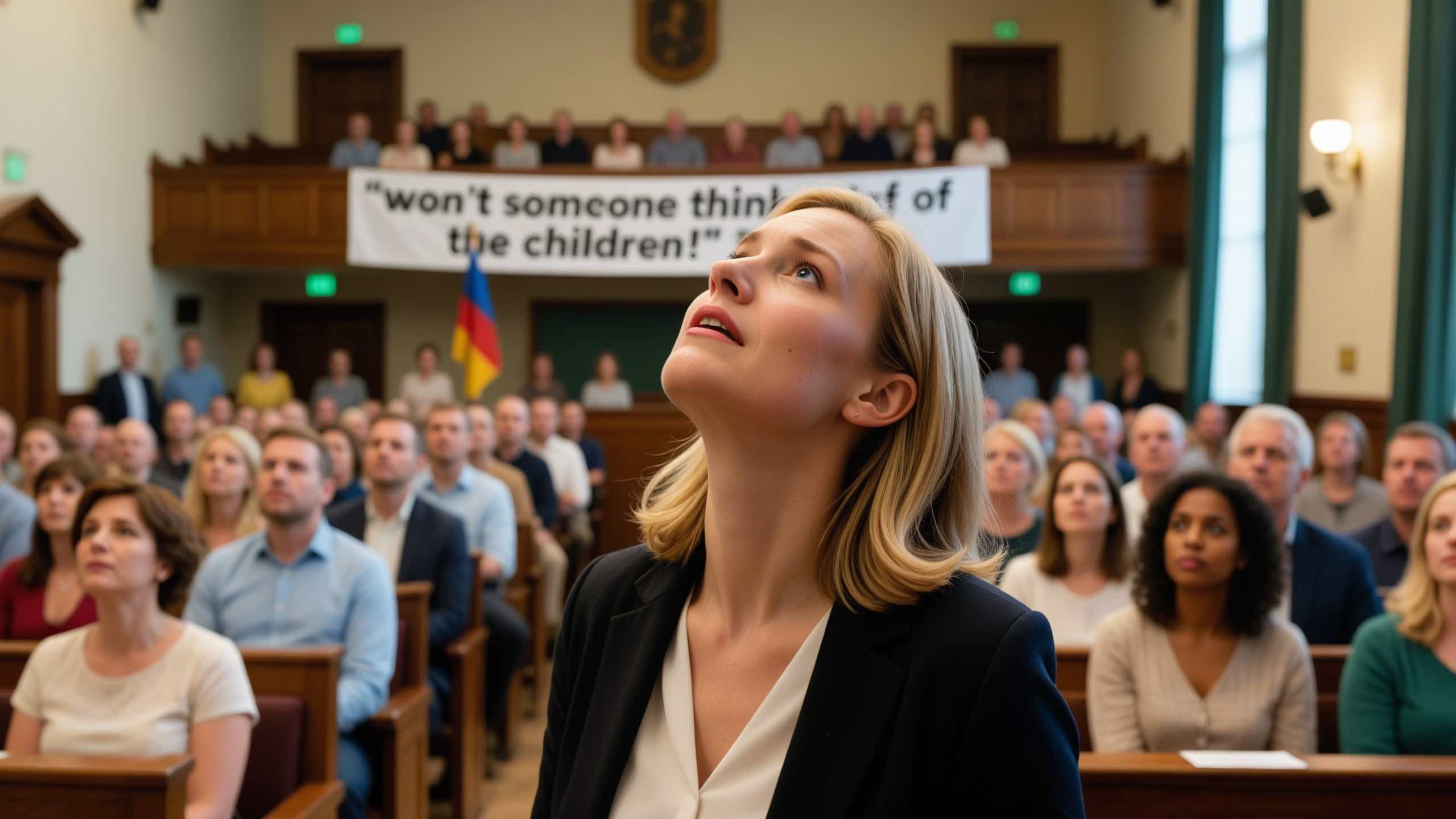
Won't someone please think of the children?
- Martin Enlund
- 11/11/25
New laws eroding privacy always follow a tired script: Invoke the “four horsemen of the infocalypse” to scare us into accepting surveillance “for the children” or “for security.” The reality is, neither our kids nor the public are any safer, just less free.
Following public opposition, the German government recently refrained from supporting Chat Control 2 - an EU proposal for digital mass surveillance. The proposal was said to aim at preventing and combating the sexual exploitation of children.
Instead, demands are increasing to tighten the age limits for social media. Several countries have recently introduced legislation requiring such age verification. The President of the European Commission has promised to present appropriate measures by the turn of the year.
Within the financial sector, surveillance has been gradually tightened for several decades. The millennia-old principle of presumption of innocence has been thrown overboard. Initially , it was said to be about stopping the drug trade and money laundering, but after the September 11 attacks, terrorist financing was also included.
In the UK, a new controversial surveillance program is planned with the official purpose of preventing benefits fraud. Critics warn of an “unprecedented surveillance” . The new British digital ID system is claimed to be a tool to counter illegal immigration , but will also be able to be used for age checks or required to be able to buy beer at the pub in the future.
The concept of the “Four Horsemen of the Infocalypse” was coined in 1988. It describes how arguments relating to child pornography, terror, drug trafficking, and money laundering are systematically used to restrict anonymity and privacy. The recurring argument that “we must do something for the sake of the children” has been satirized in the TV series The Simpsons .
Despite all measures, a new report shows that the system against financial crime is in practice ineffective - it neither reduces the occurrence of crime nor the volume of money laundering. According to research , the regulations affect the criminal economy by less than 0.1 percent. A Nordic bank is suspected of having laundered up to 800 billion euros - a sum equivalent to the financing of hundreds of thousands of major terrorist attacks. At the same time, the major bank JPMorgan in the US could have the sex offender Jeffrey Epstein as a customer for years - despite applicable regulations.
Almost 200 mobile phones belonging to visitors to Epstein’s infamous “pedophile island” have been traced to the individuals’ homes or workplaces - without the authorities acting. Instead, documents are concealed. In the UK, an independent review has identified that systematic sexual exploitation of British children has occurred in at least 85 different places - also here without the authorities reacting with force. The person who initiated the investigation has, however, been investigated for alleged misconduct, but has been cleared of the suspicions.
Almost every new law, regardless of whether it is motivated by “the best interests of the children” or “security,” follows the same pattern: the four horsemen are used as rhetorical tools to justify restrictions on privacy - and this seemingly without making either our children or ourselves any safer. Perhaps this is a perspective to keep in mind next time we hear that “we must do something for the sake of the children”?
Cover image: AI


